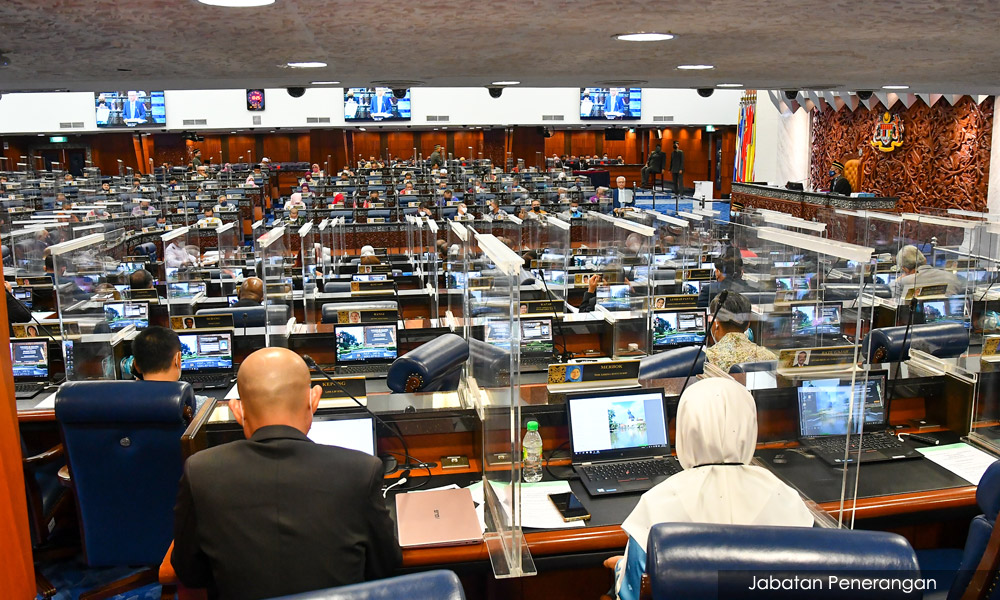In light of the special parliamentary sitting on April 11 to table the anti-party hopping bill, Pengerang MP Azalina Othman Said reiterated her call for a recall law provision.
The former law minister described it as a method of “true democracy” in cases of party-hopping, to allow voters to independently decide whether their elected representatives should remain in office or be ousted.
A recall law will allow voters to decide to remove an elected official from office before their official term has ended. It is initiated via a signed petition, submitted to the Election Commission, requesting for a recall election.
“The mechanism in the recall remedy also ensures that mischievous voters cannot embark on frivolous attempts to oust an elected representative.
“If the number of signatories on the petition does not reach a prerequisite minimum percentage, then the elected representative remains. There is no need for a recall or by-election,” Azalina (above) said in a written reply to Malaysiakini.
She reminded voters to take caution when voting for their elected representative, as essentially, they come first.
“Vote for someone who is going to serve you, who has a duty of care towards you. As a voter, you must be able to have access to your elected representative,” she said.
Minister in the Prime Minister's Department (Parliament and Law) Wan Junaidi Tuanku Jaafar announced that the anti-hopping law would finally be tabled on April 11, after several delays.
The first reading of the bill was supposed to be tabled in this month’s Parliament sitting but was speculated to have been outright rejected by the cabinet.
However, it was later clarified that an engagement session was required with all sides of the political divide to explain the purpose of the bill as well as the interpretation of “party-hopping”, including when one leaves a political party or coalition.
The present administration under Prime Minister Ismail Sabri Yaakob comprises MPs who had crossed over from Umno to Bersatu after BN's loss in the 2018 general election, as well as those who defected from PKR to Bersatu during the Sheraton Move in 2020.
Since then, there have been four state elections - Sabah, Sarawak, Malacca and Johor - with an overall downward trend in voter turnout.
According to Azalina, instances that may be considered party-hopping include MPs migrating from one coalition to another or leaving a migrated party to rejoin their initial coalition, independent MPs choosing to join a political party and vice versa, or MPs who are ousted by their political party by design or force.

She said no matter the situation, it is tantamount to voter betrayal.
“Voters voted for you with your party or coalition. So it should be up to the voters - do they want to let it be, or do they want to re-vote? It should be entirely up to voters.
“Of course, many politicians don’t want anti-hopping law because they want the flexibility to jump. The problem with jumping is the instability that ensues,” she added.
Not Umno’s decision alone
Azalina stressed that it was not the sole decision of Umno to table the bill, as it required the cooperation of all parties.
“Umno, as a party, has been very clear in its support of the anti-hopping law bill by consistently speaking against the delay in tabling it. In no instance has Umno ever condoned the delay.
“As a minority in this coalition government, (Umno) cannot single-handedly make decisions on tabling the bill.
“ [...] There seems to be a common misconception that Umno makes up the majority of the cabinet and is able to make unilateral political decisions. As a matter of fact, it is the contrary,” she said.
Umno members only make up 34 percent of the cabinet of 32 ministers, with only 11 Umno ministers, including the prime minister.
Azalina said it was misleading to refer to Umno as the government as the remaining 66 percent of the members in the cabinet needed to demonstrate political will by pushing for the passing of the law.
Azalina added that it was evident through the Malacca and Johor elections that Umno’s relationship with other parties had turned sour.
“The Malacca and Johor state elections clearly showed that Perikatan Nasional and BN are no longer in sync.
“In the past week, PAS has commented that it no longer has a relationship with BN. It is apparent that Umno’s relationship with the other parties has turned sour.
“It is not possible for Umno, composed of only one-third of the cabinet, to be in the pole position to control the agenda, including the tabling of the anti-hopping law,” she said.
Azalina’s call for a recall election system mirrors the call of political scientists like Wong Chin Huat and the electoral reform coalition Bersih.
Wong said recall elections would do a much better job of giving voters the right to fire errant politicians.
Normal recall elections are found in at least 19 states in the US, British Columbia in Canada, Japan, Taiwan, the Philippines, Switzerland, Ukraine and Peru. - Mkini



No comments:
Post a Comment
Note: Only a member of this blog may post a comment.